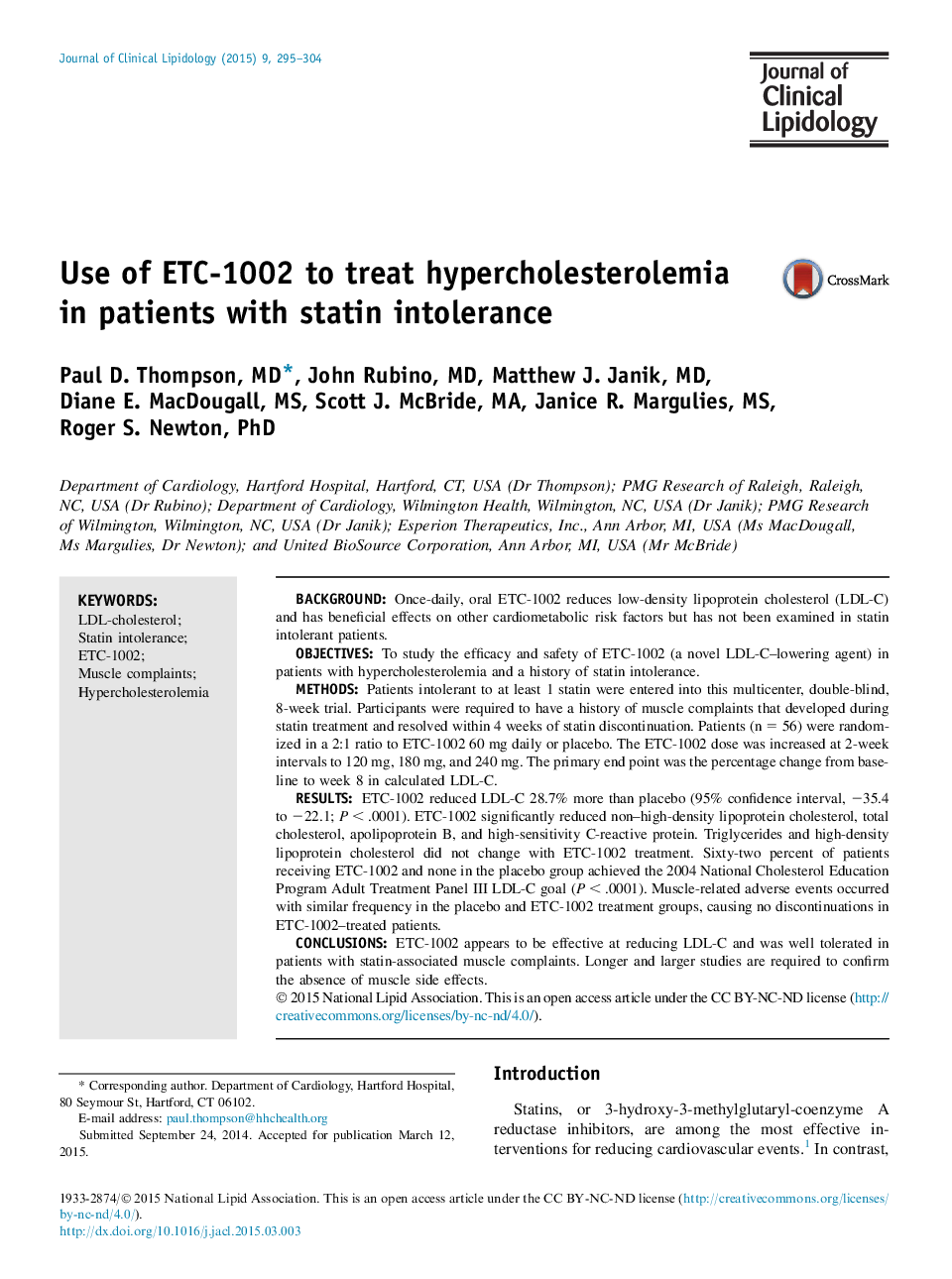| Article ID | Journal | Published Year | Pages | File Type |
|---|---|---|---|---|
| 5985539 | Journal of Clinical Lipidology | 2015 | 10 Pages |
â¢ETC-1002 was studied for cholesterol reduction in statin-intolerant patients.â¢A mean reduction of 32% in LDL-C was observed after 8-week treatment with ETC-1002.â¢62% of patients receiving ETC-1002 achieved LDL-C goal.â¢Rates of muscle-related adverse events were similar between ETC-1002 and placebo.
BackgroundOnce-daily, oral ETC-1002 reduces low-density lipoprotein cholesterol (LDL-C) and has beneficial effects on other cardiometabolic risk factors but has not been examined in statin intolerant patients.ObjectivesTo study the efficacy and safety of ETC-1002 (a novel LDL-C-lowering agent) in patients with hypercholesterolemia and a history of statin intolerance.MethodsPatients intolerant to at least 1 statin were entered into this multicenter, double-blind, 8-week trial. Participants were required to have a history of muscle complaints that developed during statin treatment and resolved within 4 weeks of statin discontinuation. Patients (n = 56) were randomized in a 2:1 ratio to ETC-1002 60 mg daily or placebo. The ETC-1002 dose was increased at 2-week intervals to 120 mg, 180 mg, and 240 mg. The primary end point was the percentage change from baseline to week 8 in calculated LDL-C.ResultsETC-1002 reduced LDL-C 28.7% more than placebo (95% confidence interval, â35.4 to â22.1; P < .0001). ETC-1002 significantly reduced non-high-density lipoprotein cholesterol, total cholesterol, apolipoprotein B, and high-sensitivity C-reactive protein. Triglycerides and high-density lipoprotein cholesterol did not change with ETC-1002 treatment. Sixty-two percent of patients receiving ETC-1002 and none in the placebo group achieved the 2004 National Cholesterol Education Program Adult Treatment Panel III LDL-C goal (P < .0001). Muscle-related adverse events occurred with similar frequency in the placebo and ETC-1002 treatment groups, causing no discontinuations in ETC-1002-treated patients.ConclusionsETC-1002 appears to be effective at reducing LDL-C and was well tolerated in patients with statin-associated muscle complaints. Longer and larger studies are required to confirm the absence of muscle side effects.
